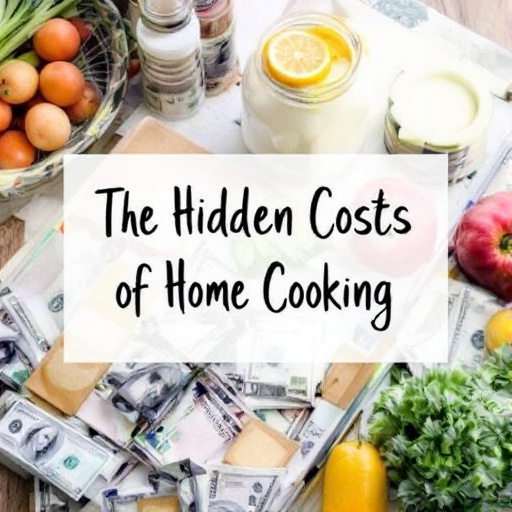Featured Articles
- "Beyond Excel: Unconventional Tools Revolutionizing Home Budget Planning in 2023"
- Budgeting for Homegrown Happiness: How Urban Gardening Can Save You Money and Enhance Your Wellbeing
- "Mindful Spending: How Minimalism Can Transform Your Home Budget Planning Journey"
- "Mindful Spending: How Minimalist Living Can Transform Your Home Budget Strategy"
- Navigating the Mind: How Psychology Can Transform Your Home Budget Planning Process
"Mindful Spending: How Minimalist Living Can Transform Your Home Budget Strategy"
"Mindful Spending: How Minimalist Living Can Transform Your Home Budget Strategy"
Mindful spending can significantly alter your financial landscape, particularly in the context of minimalist living. By adopting a minimalist lifestyle, individuals can not only declutter their physical spaces but also refine their approach to budgeting and financial management.
Understanding Minimalism: More Than Just Decluttering
Minimalism is often mistaken as merely a design choice or a way to declutter your living space. However, at its core, minimalism is a lifestyle philosophy that emphasizes intentionality, simplicity, and mindfulness. When you embrace minimalism, you're not just eliminating the excess physical possessions; you're also prioritizing experiences and relationships over material goods. According to a study by the American Psychological Association, individuals who practice minimalism report higher levels of happiness and lower stress. Imagine walking into a space where each item has purpose. What a refreshing feeling!
The Average American's Spending Habits
Time for some eye-opening statistics: According to the Bureau of Labor Statistics, the average American household spends around $61,000 each year, with over $\$20,000$ going toward discretionary purchases. Ironically, as we accumulate more, we often find ourselves feeling less satisfied. This is where mindful spending comes into play. The goal is to become more aware of what you are purchasing and why you are buying it.
Mindful Spending: Key Principles
1. **Awareness**: Understand your spending patterns. Do you frequently shop during moments of stress? Are you driven more by impulse than need? Keeping a spending journal can help illuminate these patterns.
2. **Intention**: Each purchase should have a clear purpose. As the Danish philosopher Søren Kierkegaard once said, “Life can only be understood backwards; but it must be lived forwards.” Before buying, ask yourself if the item adds value to your life.
3. **Simplicity**: Simplifying your purchases and focusing on quality over quantity allows you to enjoy your items more fully. Choosing to invest in high-quality pieces rather than fast fashion or disposable goods is not only better for the environment but can save you money in the long run.
How Minimalism Transforms Your Home Budget Strategy
Embracing a minimalist lifestyle leads to more effective budgeting strategies. For instance, a couple named Jake and Emily decided to overhaul their home budget after realizing their clutter was causing financial stress. They documented every item they owned and discovered they had over $5,000 worth of items they no longer used or needed. After selling these items, they redirected the funds toward experiences—such as travel—rather than purchasing more items. The result? A leaner budget and a more fulfilling lifestyle!
Budgeting Tips for Minimalist Living
Establish a "Needs vs. Wants" Fund: Create two separate budget categories for needs and wants. By clearly defining what is essential versus what is merely desired, you can better control your spending and save for meaningful purchases.
Automate Your Savings: Set up automatic transfers to a savings account each month. This way, you prioritize saving before you even have the chance to spend.
The Psychological Benefits of Minimalism
It’s not all about the finances! The psychological benefits of minimalism can immeasurably improve your quality of life. Researchers at UCLA found that households with clutter have elevated cortisol levels, leading to increased stress and anxiety. On the other hand, homes that prioritize cleanliness and simplicity help to create a positive, peaceful living environment.
Anecdote: The Coffee Lover
Take the story of Sarah, a 27-year-old coffee enthusiast who decided to implement mindful spending techniques into her life. Rather than purchasing her favorite daily $5 coffee from a local café, Sarah opted for a French press and high-quality beans. She discovered that her home-brewed coffee taste was better, and her weekly budget reflected a $35 saving. She used that money to enroll in a pottery class, cultivating a new hobby that brought her joy.
Investing in Experiences
Sarah’s story emphasizes an important point about creating memories rather than accumulating things. A study by Cornell University found that experiences (like traveling or taking courses) provide longer-lasting happiness compared to physical items. When you invest in experiences, you have stories to share and memories to cherish.
Building a Community
Embracing minimalism and mindful spending can help you connect with others who share similar values. Start a swap club where friends can exchange items, reducing the need for new purchases. Or perhaps join a minimalist living online community where you can find support, tips, and encouragement as you trim your budget and declutter your life.
Persuasive Angle: The Financial Freedom of Minimalism
Imagine a life free from debt and clutter. Wouldn't that be liberating? Minimalism isn't just a trend; it's a pathway to financial freedom! By adopting a minimalist perspective, you can control your expenditures and create a sustainable budget that fits your values and lifestyle.
Statistically, people who identify as minimalist tend to report improved financial stability. According to a survey n by the Minimalism Life, 78% of respondents claimed they felt less financial stress after adopting minimalist practices. Who wouldn't want to join that club?
Challenges of Minimalist Living
Of course, minimalism isn’t without challenges. The transition may feel overwhelming, and you might encounter resistance from family or friends who don’t understand your new lifestyle choices. Establish healthy boundaries—explain your mindful spending goals and encourage them to join you on this journey. Remember, transformation takes time.
Long-Term Commitment
Adopting a minimalist lifestyle is not a one-time event but rather a long-term commitment. The key is consistency. Create a habit of evaluating your spending decisions regularly. This can lead to smarter financial habits that promote well-being and mindfulness in your daily life.
Case Study: The Millennial Minimalist
Let’s take a look at Alex, a 30-year-old freelance graphic designer who found that his excessive consumerism was hindering his creative opportunities. After embracing minimalism, Alex reported not only a significant reduction in expenses but also an increase in productivity. "I realized I was spending money on things that stifled my creativity," he said. "Now, every dollar I spend goes towards experiences or tools that help me grow." Alex’s story reflects the idea that minimalism can also elevate our professional lives.
Final Thoughts: A Roadmap to Mindful Spending
In conclusion, practicing mindful spending through minimalist living presents a powerful means of redefining your home budget strategy. By understanding your spending, prioritizing meaningful purchases, and investing in experiences, you pave the way to a lifestyle that's not just financially sustainable but also enriches your emotional and mental well-being. Remember, every item you own deserves a place in your life—and in your budget. Embrace the journey of minimalism, and watch your finances—and happiness—flourish.




